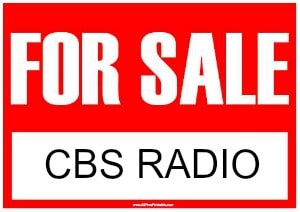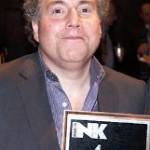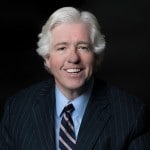
In all likelihood, radio’s two biggest players will not be participating in what will probably be the sell-off of some of radio’s best radio stations and brands. With debt and revenue issues facing iHeartMedia and Cumulus, most of the financial experts we spoke to Tuesday believe those two companies will not be involved in any CBS deals. And, as Media Services Group broker Bob Heymann tells Radio Ink, in all likelihood, it will not be one buyer, they will be sold as market clusters. So who are possible buyers? Let the speculation begin.
Connoisseur Media CEO Jeff Warshaw says he’s interested. With 42 stations in 12 markets , including a strong presence in the “Golden Ring” around New York City, you have to wonder if both the Hartford and New York City markets are especially interesting to Warshaw. However, he tells Radio Ink he’s interested in looking at all of CBS Radio. You may also remember that, less than a year ago, Connoisseur announced Petrus Holding Company, a Perot Company, had made an investment in the company.
, including a strong presence in the “Golden Ring” around New York City, you have to wonder if both the Hartford and New York City markets are especially interesting to Warshaw. However, he tells Radio Ink he’s interested in looking at all of CBS Radio. You may also remember that, less than a year ago, Connoisseur announced Petrus Holding Company, a Perot Company, had made an investment in the company.
 Larry Wilson has certainly been an active buyer over the past few years. And he certainly has experience in the major markets from his Citadel days. However, with the ink still drying from the prolonged closing of the Digity deal, you have to wonder if it’s a tad too early for Wilson to be buying again so soon. Wilson was recently named Radio Ink’s Radio Executive of The Year, and in our January 18 cover story interview Wilson said, back then, before these CBS properties officially went on the block, “We want to take a little bit of a breather here and do some things operationally.”
Larry Wilson has certainly been an active buyer over the past few years. And he certainly has experience in the major markets from his Citadel days. However, with the ink still drying from the prolonged closing of the Digity deal, you have to wonder if it’s a tad too early for Wilson to be buying again so soon. Wilson was recently named Radio Ink’s Radio Executive of The Year, and in our January 18 cover story interview Wilson said, back then, before these CBS properties officially went on the block, “We want to take a little bit of a breather here and do some things operationally.”
What about Greater Media? Just last month, as the company celebrated 60 years in business, CEO Peter Smyth told Radio Ink he wanted the dust to settle a little bit but he did not close the door to growing the company. “The important thing for us is to be strategic and opportunistic at the right prices. If the assets are at the right prices, it’s going to make sense to us. The last thing you want is to do a bad deal in a lousy market. I don’t want to do that. I want to protect the balance sheet and protect the company.” Greater Media owns 21 stations in Boston, Charlotte, Detroit, Philadelphia, and New Jersey.
business, CEO Peter Smyth told Radio Ink he wanted the dust to settle a little bit but he did not close the door to growing the company. “The important thing for us is to be strategic and opportunistic at the right prices. If the assets are at the right prices, it’s going to make sense to us. The last thing you want is to do a bad deal in a lousy market. I don’t want to do that. I want to protect the balance sheet and protect the company.” Greater Media owns 21 stations in Boston, Charlotte, Detroit, Philadelphia, and New Jersey.
Several brokers we spoke with Tuesday told us we should also keep an eye on Hubbard.






Despite what might actually happen – and to what degree – Mr. Sommers describes the best of all situations.
Even so, leadership will still be at a loss as how, specifically, to make the necessary improvements – those improvements that go beyond more local ownerships.
It will still, I believe, be a matter of the quality of services and products that will determine local audience and local advertiser participation.
It is about time the bubble bursts, the one takes all, multi ownership of stations and markets comes to an end: Let the return of the stations to the local communities begin, to the local advertisers, the local listeners, the communities to which they are licensed to serve and not to the bankers, hedge fund managers, and investment firms of far, far away. It won’t happen overnight. But smaller, regional groups will pick up stations and local stand alones will eventually follow. Radio and TV will begin again to serve local audiences with local news, local music tastes, and local activities; local advertisers will be given a local audience and local rates again and more local and personal service by station staffs. Local banks will get deposits instead of the mailman taking the money away from local economies so that bean counters can determine the price of their stock and buy more stations. Other businesses have found decentralization, local control, yields better performance efficiencies and profits; it is just about time broadcasting gets with it.